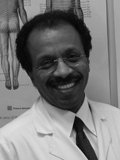
More Pain Management & Rehabilitation Articles
Spinal Cord Stimulator Implant
Spinal cord stimulation (SCS) is a treatment for pain that uses a mild electric current to block nerve impulses in the spine. SCS is a proven safe and effective therapy for managing chronic pain, and it is approved by the FDA.
Pain messages are sent to the brain along nerves in your spinal cord. SCS uses mild electrical impulses to block pain signals to the brain.
This means the electrical impulse from the SCS reaches your brain first, before the pain signal arrives. Instead of pain, you feel a tingling sensation from the SCS in the area where you experience pain.
Why the Procedure Is Performed
Your doctor may recommend this procedure if you have:
- Back pain that continues or gets worse, even after surgery to correct it
- Complex regional pain syndrome
- Long-term (chronic) back pain, with or without arm or leg pain
- Nerve pain or numbness in the arms or legs
- Swelling (inflammation) of the lining of the brain and spinal cord
SCS is used after you have tried other treatments such as medication and exercise and they have not worked.
Benefits May Include:
- Significant and sustained reduction in leg and back pain
- Improved ability to function and participate in activities of daily living
- Less oral pain medications
- Reversible and nondestructive – the therapy can be turned off or surgically removed
- You have the ability to adjust the therapy based on your pain level
- With improvements in your pain you may be able to participate in other forms of therapy to better help manage your pain
Before the procedure tell your doctor or nurse what drugs you are taking, even drugs or herbs you bought without a prescription.
During the days before the surgery:
- If you are a smoker, you need to stop smoking.
- Two weeks before surgery, you may be asked to stop taking drugs that make it harder for your blood to clot. These include aspirin, ibuprofen (Advil, Motrin), naproxen (Aleve, Naprosyn), and other drugs like these.
- If you have diabetes, heart disease, or other medical problems, your surgeon will ask you to see your regular doctor.
- Talk with your doctor if you have been drinking a lot of alcohol.
- Ask your doctor which drugs you should still take on the day of the surgery.
- Always let your doctor know about any illnesses you may have.
After the Procedure
After the permanent generator is placed, the surgical cut will be closed and covered with a dressing. You will be taken to the recovery room to wake up from the anesthesia.
Most people can go home the same day, but your doctor may want you to stay overnight in the hospital. You will be taught how to care for your surgical site.
You should avoid heavy lifting, bending, and twisting while you are healing. Light exercise such as walking can be helpful during recovery.
Patients who have this procedure may have less back pain and need to take fewer pain medications. However, the treatment does not completely cure back pain or treat the source of the pain.
Other Articles You May Find of Interest...
- Alleviating Joint Pain in Pets: A Comprehensive Guide
- Sciatica Treatment Options
- How to Promote Bone Fracture Healing? Tips for Faster Healing
- Managing Chronic Back and Neck Pain
- Pervasiveness Of Pain
- Effective Solutions for Lower Back Arthritis: Medial Branch Blocks and Radiofrequency Ablation
- Spinal Compression Fracture Treatment Options

















